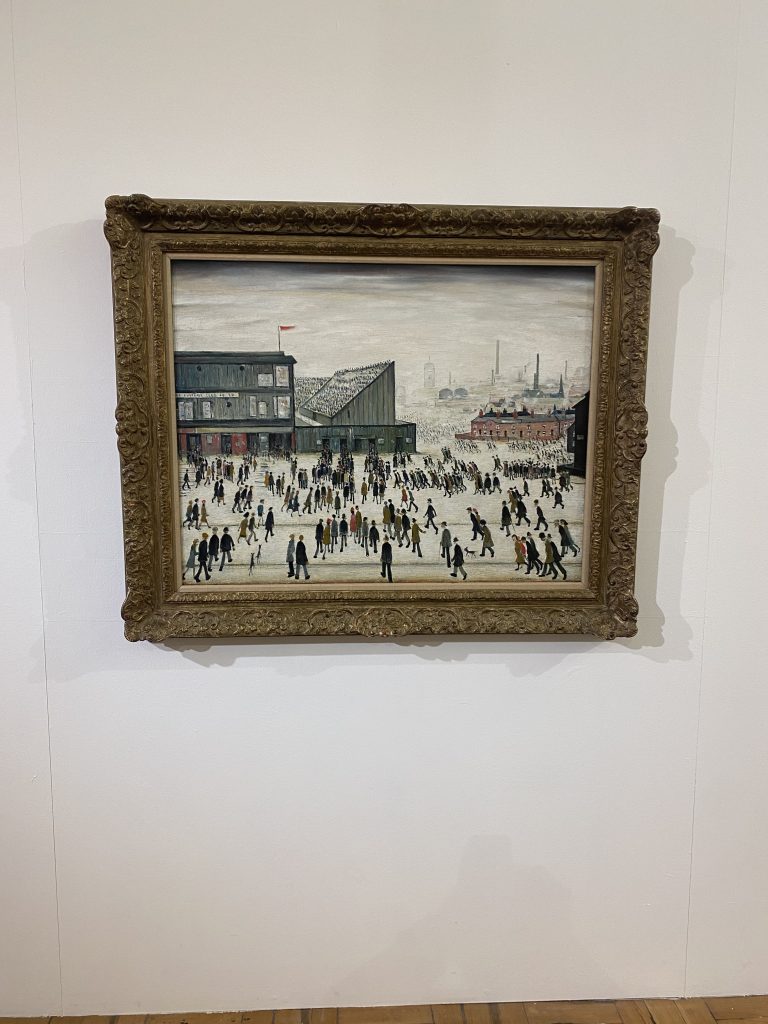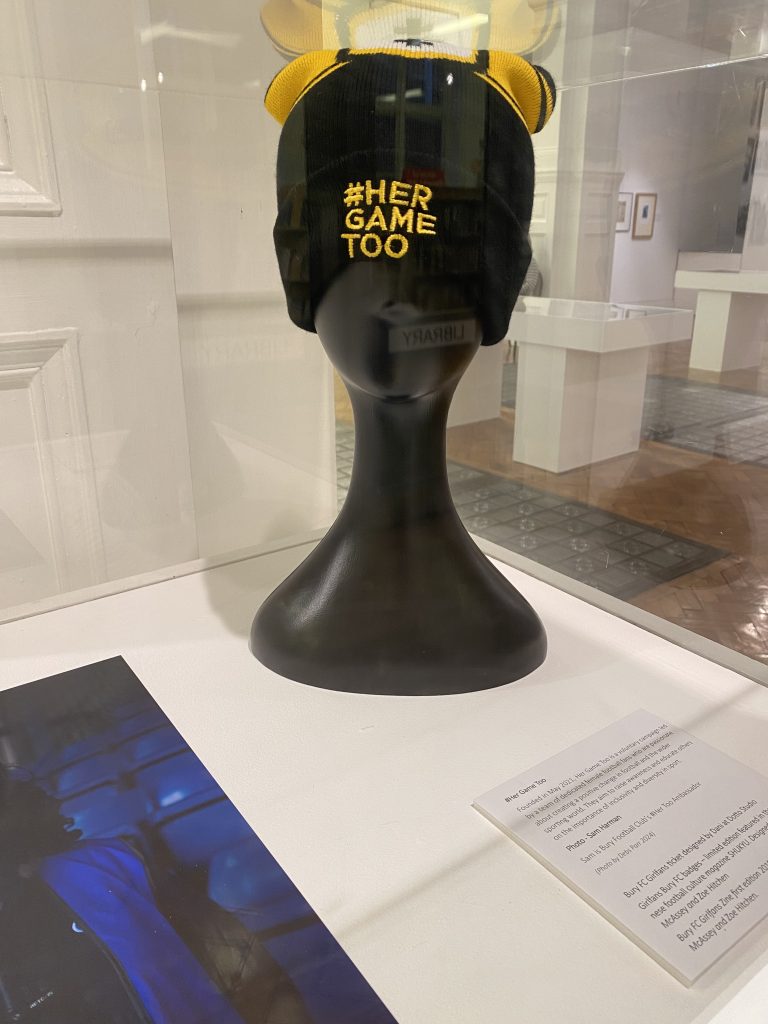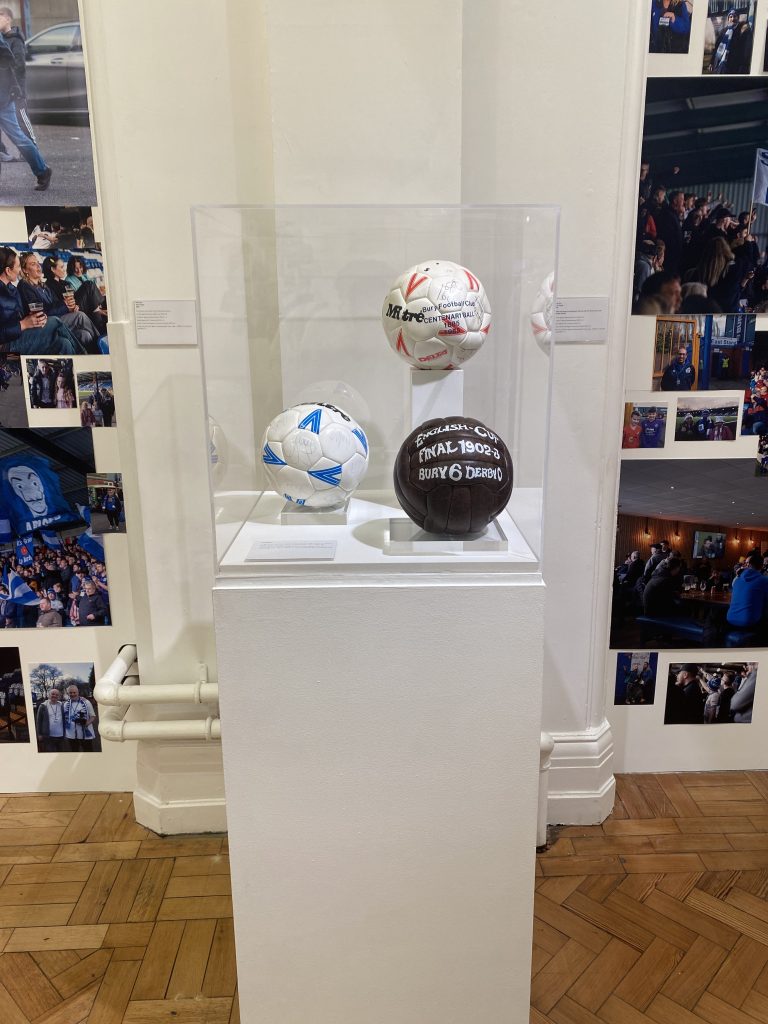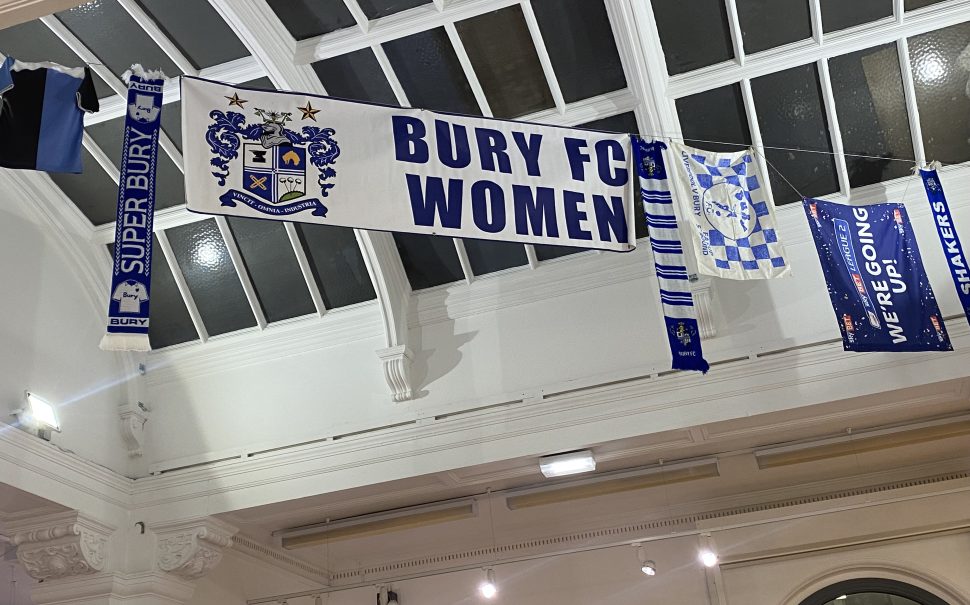An award-winning movie was screened as part of a new exhibition about football fans across the north west.
‘Granny’ was shown as part of a celebration of women in football – just part of the Going To The Match event at Bury Art Gallery and Museum.
The short film celebrates Lizzy Ashcroft, star of Dick Kerr Ladies who played football during the First World War.
The team played for 48 years, Ashcroft for 14, despite a ban on women’s football being played on FA pitches – which wasn’t lifted until 1971.
As part of the exhibition, LS Lowry’s 1953 iconic painting Going To The Match is on display until March 1 next year. It shows fans arriving for a Bolton Wanderers game at their former home, Burnden Park.

“Everyone should have the opportunity to play football and experience the social, psychological and mental benefits it brings,” said Karen Bardsley, former England Lionesses, Man City Women FC goalkeeper and Chair of Greater Manchester Women’s Football Board.
The screening of Granny was followed by a Q&A event with guest speakers Sophia Sanderson, Laura Myles and Alicia Dale.
Sanderson is founder of ‘Women of Colour and The Beautiful Game’, a Manchester based grassroot initiative supporting women of colour to play football both casually and competitively.
Support for women in football across the North West has been growing.
Since the launch of the Greater Manchester Women’s Football Board in 2022, there has been a 60% increase in female FA-affiliated teams in Greater Manchester.
Discussing the importance of making football more accessible “for the generally disadvantaged to get involved” the group shared how representation and resources impact a young girl’s ability to play the game.
Sanderson says cultural differences mean football is “embedded into the family home” for some but not others, and she aims to make women from different backgrounds “feel automatically like it’s for them”.
More than 80% of schools in Greater Manchester are now offering equal access to girls to play football as part of the curriculum, 5% higher than the national average, according to Greater Manchester Women’s Football Board.
For women who do dedicate themselves to football, Sanderson said the pressures they face impact how far the ladies can go – as many feel they are “constantly proving that they should be on the pitch”.
Pay disparages and a lack of infrastructure to deal with injuries were other issues.
The importance of aftercare and addressing mental health was highlighted as major factors into keeping women playing football.

This insightful talk comes just after Greater Manchester Women and Girls’ Football Board welcomed the FA’s ‘Reaching Higher’ strategy last week.
The board is a collective of national and local organisations committed to accelerating the growth of women and girls’ football in Greater Manchester, tackling inequalities, and increasing opportunities to access the game.
Mayor Andy Burnham said: “Football is an intrinsic part of our culture in Greater Manchester and contributes to what makes our city-region great.
“Whilst we have seen progress since the Board was established in 2022, through an increase in women and girls playing football, we recognise that there is still more to do.”
Featured image: Bury Art Gallery and Museum





